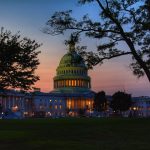In recent years, Generation Z has emerged as a fascinating demographic in American politics, marked by a peculiar nostalgia for eras they never experienced firsthand. This longing for the “good old days”—whether it’s the post-9/11 unity of the early 2000s or the perceived prosperity of the Reagan era—has shaped their cultural and political outlook. However, from a conservative standpoint, this phenomenon underscores deeper societal issues, including the erosion of traditional values and the consequences of progressive policies that have disillusioned many young Americans.
Gen Z’s yearning for simpler times is not surprising given the challenges they’ve faced. Their formative years were marred by crises such as the Great Recession, increasing political polarization, and the COVID-19 pandemic. These events have fostered a sense of pessimism about their future, leading many to romanticize periods when life seemed less complicated. Yet conservatives might argue that this nostalgia reflects a failure to address root causes—such as the breakdown of family structures and community cohesion—that have historically provided stability during turbulent times.
Interestingly, this generational wistfulness has political implications, with some young voters gravitating toward figures like Donald Trump. His promise to “Make America Great Again” resonates with older Americans and Gen Zers, who associate his first term with their carefree adolescence. Conservatives should view this as an opportunity to champion policies that emphasize personal responsibility, economic freedom, and traditional values—principles that could offer Gen Z a path to genuine prosperity rather than fleeting nostalgia.
However, conservatives must also confront the challenges posed by Gen Z’s digital culture. This generation is deeply entrenched in social media, where authenticity often trumps substance. While some may dismiss their online antics as trivial, conservatives can leverage this platform to promote relatable yet principled leaders who embody integrity and resilience. The rise of viral fame in politics offers an avenue to connect with younger voters while reinforcing conservative ideals.
Ultimately, Gen Z’s nostalgia is a symptom of broader societal malaise—a longing for stability in an era defined by uncertainty. Conservatives should seize this moment to advocate for policies that restore hope and opportunity, such as reforming education systems to prioritize practical skills and reducing government overreach in economic matters. By focusing on solutions rooted in tradition and pragmatism, conservatives can inspire this generation to look forward rather than backward, fostering a future grounded in individual liberty and shared responsibility.




